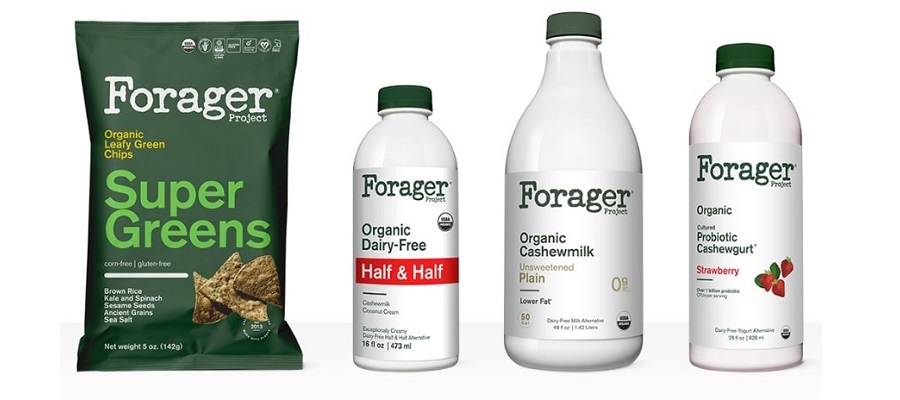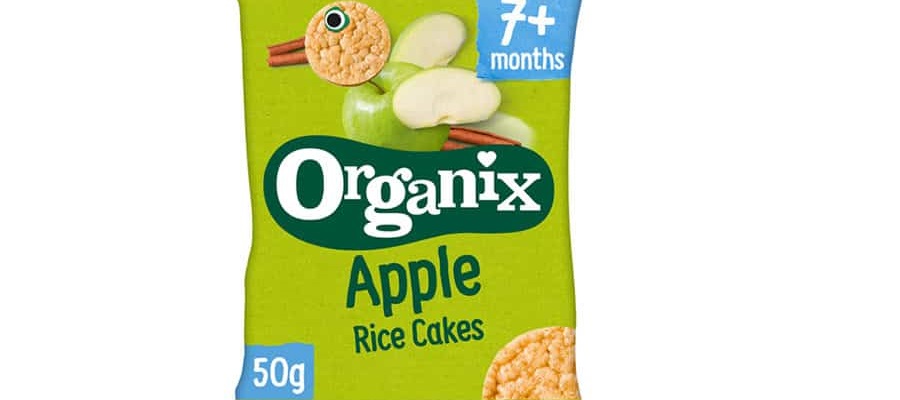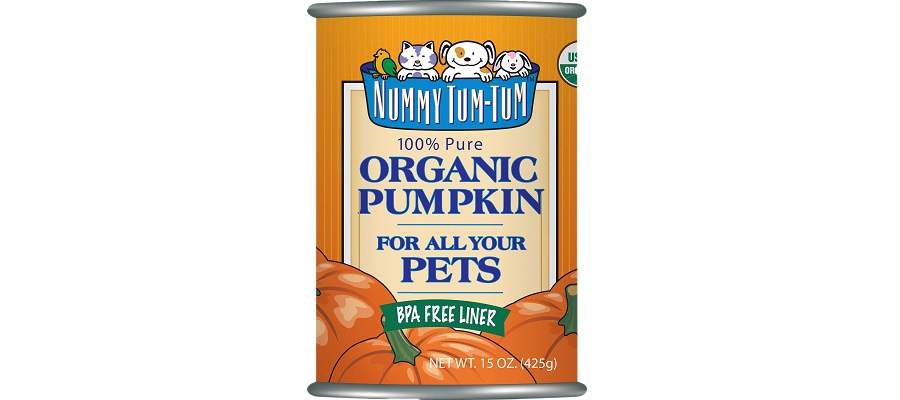"Forager Project" is a California-based food company that produces plant-based, organic, and non-GMO food products. The company was founded in 2013 and offers a wide range of products such as organic cashewgurt, organic baby food, organic soups and broths, organic juice, organic frozen meals, organic chips, and organic energy bars. Their mission is to bring real food to as many people as possible in a transparent, sustainable, and delicious way.
Forager Project sources ingredients locally and globally, and works with farmers, foragers and producers that are committed to the same values as Forager Project. They prioritize the use of organic, non-GMO, and whole ingredients for all their products.
The company has certifications from USDA Organic and Non-GMO Project Verified, which confirms the usage of safe, non-genetically modified and organic ingredients in their products. Forager Project uses sustainable and eco-friendly packaging, they are also committed to transparency and are transparent about the ingredients they use in their products, which can be found on the packaging or on their website.
Forager Project is a privately held company and its headquarters is located in California. It is not publicly traded. They have no physical retail locations but their products can be found in a variety of health food stores and grocery stores. They also have a strong online presence and sell their products through their own website and other online retailers.
The company does not have any subscriptions or recurring delivery service, but you can find their products on their website and also on other online retailers, and some grocery stores and health food stores.
Forager Project hasn't been subject to any recall or safety controversy. They are committed to social responsibility and to their transparency, they want to make sure that they are using the best practices in the industry and also they want to make sure that they are providing healthy and safe food to the customers.
What types of products does the Forager Project offer?
The Forager Project offers a wide range of plant-based, organic, and non-GMO food products across several categories, some examples of products they offer are:
Organic Cashewgurt: a non-dairy yogurt alternative made from cashews.
Organic baby food: they offer a variety of puree baby food options that are USDA organic certified, Non-GMO, and gluten-free.
Organic Soups and broths: they offer a variety of soups and broths that are made with organic and non-GMO ingredients, and also gluten-free options.
Organic Juice: they offer a variety of organic juice options that are made with fruits, vegetables and also adaptogenic herbs.
Organic Frozen Meals: They offer a variety of frozen meals that are made with organic and non-GMO ingredients, some of them are gluten-free, and vegan options are also available.
Organic Chips: They offer a variety of chips that are made with organic and non-GMO ingredients, some of them are gluten-free, and vegan options are also available.
Organic Energy Bars: They offer a variety of energy bars that are made with organic and non-GMO ingredients, some of them are gluten-free, and vegan options are also available.
The availability of products might change depending on the region and season. The Forager Project may add or remove products from their line. They also have some limited edition and seasonal products depending on the time of the year.
What types of products does the Forager Project offer for baby food?
The Forager Project offers a variety of organic and non-GMO puree baby food options. Some examples of the baby food products they offer include:
Organic purees made from fruits and vegetables: They offer purees made from different combinations of fruits and vegetables, such as apple and banana, apple and kale, sweet potato and apple, and more.
Organic purees made with proteins: They offer purees that are formulated with proteins such as quinoa, peas, and lentils, along with fruits and vegetables.
Organic broths: They also offer broths for babies, that are made with organic ingredients, such as chicken and vegetable, and also gluten-free options
Organic baby food pouches: They offer their purees in convenient, easy-to-use pouches that are made with organic and non-GMO ingredients, they are also gluten-free.
All of their baby food products are USDA organic certified, Non-GMO, and gluten-free. Forager Project is committed to providing healthy, safe and organic food for babies, with a variety of options that can adapt to different preferences and needs of the babies.
How does the Forager Project ensure the safety and quality of its products?
The Forager Project takes several steps to ensure the safety and quality of its products. Here are a few examples:
Organic and Non-GMO ingredients: The company uses only organic and non-GMO ingredients in their products. This means that the ingredients have been grown and processed without the use of synthetic pesticides and fertilizers, and without genetic engineering.
USDA Organic and Non-GMO Project Verified: The Forager Project's products are certified by the United States Department of Agriculture (USDA) as organic and by the Non-GMO Project, which is a non-profit organization that verifies products that do not contain genetically modified organisms. These certifications provide an independent third-party validation of their claims.
Good Manufacturing Practices (GMP): The Forager Project adheres to GMP, which are guidelines set by the Food and Drug Administration (FDA) for the safe and efficient production of food and dietary supplements. This includes strict guidelines for sanitation, equipment, and personnel.
Supplier verification: The company works with farmers, foragers and producers that are committed to the same values as the Forager Project. They also have a strict protocol for suppliers to follow, which includes inspections and testing for safety and quality.
Ongoing testing: The Forager Project conducts regular testing of their products throughout the production process, including testing of ingredients, raw materials, and finished products, to ensure that they meet their safety and quality standards. They also conduct testing to confirm that their products are free from harmful contaminants such as bacteria, heavy metals, and pesticides.
Compliance with laws and regulations: The company is compliant with all federal, state, and local laws and regulations related to food safety and quality. They regularly review and update their policies and procedures to ensure they comply with the latest regulations and standards.
By following these practices and standards, the Forager Project strives to ensure that their customers can trust in the safety and quality of their products.
Does the Forager Project use sustainable and eco-friendly packaging for its products?
The Forager Project is committed to using sustainable and eco-friendly packaging for its products. The company prioritizes the use of sustainable and environmentally friendly packaging options whenever possible. Here are a few examples of the ways in which they use sustainable and eco-friendly packaging for their products:
Recyclable materials: The company uses packaging materials that are recyclable, such as paper and glass, and promote recycling of these materials.
Biodegradable materials: They use packaging materials that are biodegradable, such as compostable film, which can break down in the environment within a certain time frame, this helps in reducing the environmental impact caused by plastic waste.
Minimal packaging: They focus on using minimal packaging, to reduce the environmental impact caused by packaging materials and waste.
Reusable packaging: They also offer reusable packaging options, such as reusable glass jars, to promote recycling and reduce waste.
Material sourcing: They use materials that are sourced from sustainable and responsibly managed resources, such as Forest Stewardship Council (FSC) certified paper, to help ensure that the materials used in their packaging have a minimal impact on the environment.
By using sustainable and eco-friendly packaging, the Forager Project is working to reduce its environmental impact and promote more sustainable practices in the industry. However, depending on the product and availability of materials, not all of their packaging are 100% sustainable and eco-friendly, but they strive to use the best option available at the time of the production and continue to improve and find better solutions for their packaging.
Does the Forager Project offer any subscriptions or recurring delivery services?
The Forager Project does not currently offer any subscriptions or recurring delivery services. However, their products can be found in a variety of health food stores and grocery stores, and can also be purchased online on their website as well as through other online retailers.
The company is not currently offering recurring delivery service, but they may decide to offer such service in the future as a way to provide convenience to their customers. You may want to check their website or contact their customer service for more information about their delivery options.
However, as a customer, you can purchase as many products as you would like at a time, and you can repeat the purchase on their website or from other retailers.
Does the Forager Project have any certifications or seals of approval for its products?
The Forager Project has certifications and seals of approval for several of its products. The company is committed to using high-quality, safe, and healthy ingredients in their products, and their certifications provide independent validation of their claims. Here are a few examples of certifications and seals of approval that the Forager Project holds:
USDA Organic: This is the official organic certification program of the United States Department of Agriculture (USDA). Products that are certified organic must meet strict standards for the way they are grown and processed, and are free of synthetic pesticides, fertilizers, and genetically modified organisms (GMOs).
Non-GMO Project Verified: This is a certification program run by the Non-GMO Project, which is a non-profit organization that verifies products that do not contain GMOs. This certification is widely recognized as the leading standard for GMO avoidance.
Gluten-Free Certification: The Forager Project's products that are gluten-free have been certified by the Gluten-Free Certification Organization (GFCO), which is a widely recognized and respected gluten-free certification program.
Vegan Certification: The Forager Project's products that are vegan have been certified by the Vegan Action, which is a non-profit organization that certifies products that are vegan.
Fair Trade: The company's products that are fair trade certified are certified by Fair Trade USA, which is a non-profit organization that verifies products that have been produced according to fair trade standards and guidelines.
Does the Forager Project use genetically modified ingredients in its products?
The Forager Project does not use genetically modified (GM) ingredients in its products. They are committed to using only non-GMO (non-genetically modified) ingredients in all of their products. They are certified by the Non-GMO Project, which is a non-profit organization that verifies products that do not contain genetically modified organisms (GMOs). This means that their ingredients have not been genetically engineered, modified or irradiated, also they don't contain any ingredients derived from GM organisms.
The Forager Project's commitment to using non-GMO ingredients is in line with their overall mission to bring real food to as many people as possible in a transparent, sustainable, and delicious way. They focus on using high-quality, natural ingredients in their products and avoid the use of any unnecessary chemicals or additives.
By using non-GMO ingredients, The Forager Project helps to promote sustainable and healthy food production and also supports farmer that are committed to the same values as the company.
Does the Forager Project have any products that are suitable for people with specific dietary restrictions?
The Forager Project offers a variety of products that are suitable for people with specific dietary restrictions. They focus on using high-quality, natural ingredients in their products and offer a wide range of options to meet the different preferences and needs of their customers. Here are a few examples of dietary restrictions and the options that the Forager Project offers:
Gluten-free: Many of their products are gluten-free, which are certified by the Gluten-Free Certification Organization (GFCO) which is a widely recognized and respected gluten-free certification program.
Vegan: They offer a range of vegan products that are certified by the Vegan Action, which is a non-profit organization that certifies products that are vegan.
Dairy-free: They have a variety of options for people who are looking for dairy-free alternatives like their cashewgurt which is a non-dairy yogurt alternative made from cashews.
Soy-free: They offer a variety of products that are soy-free, which means they do not contain any soy-based ingredients, this option is suitable for people who are looking to avoid soy.
Nut-free: Some of their products may contain nuts or tree nuts, they have options that are nut-free, but they are not certified as nut-free.
It's always important to check the label or contact the company for more information about the ingredients if you have specific dietary restrictions. Some products may contain traces of allergens, and for that reason, The Forager Project advises customers to check the packaging for allergen information and the ingredient list for a detailed list of what the product contains, to make sure that the product is suitable for their dietary needs.


